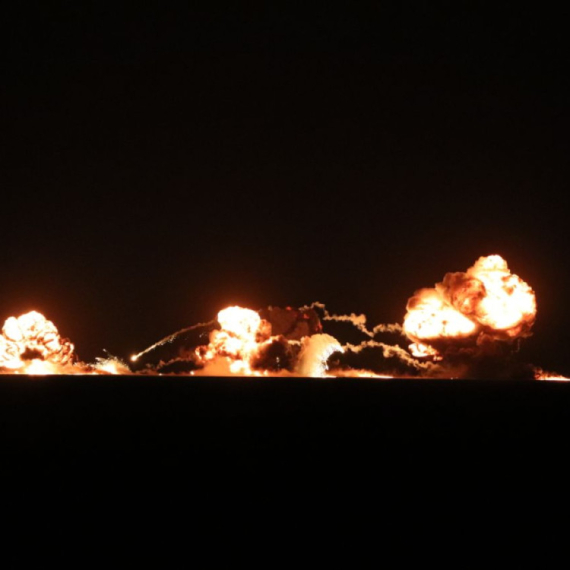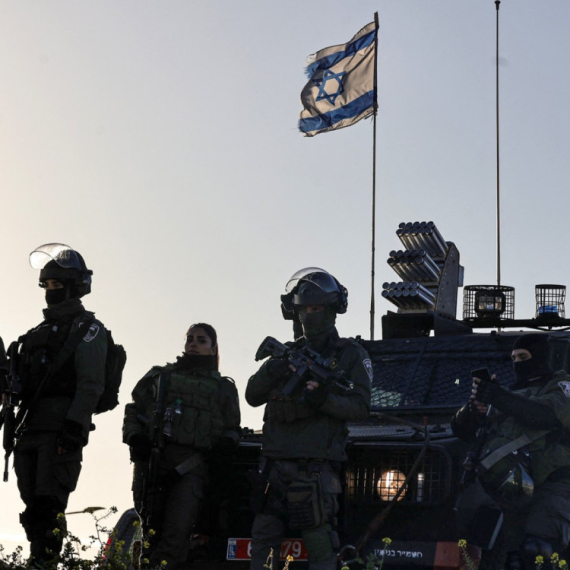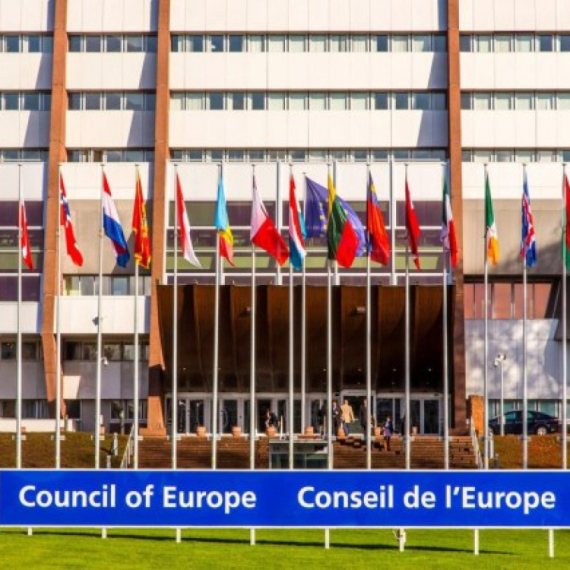Milošević highlighted in declassified CIA reports
CIA reports about Slobodan Milošević, filed in 1995, say that the former president had "successfully undermined the influence of the nationalist faction."
Friday, 27.09.2013.
12:17

BELGRADE CIA reports about Slobodan Milosevic, filed in 1995, say that the former president had "successfully undermined the influence of the nationalist faction." "Slobodan Milosevic has really cleverly shifted the public opinion, where there was previously a consensus in favor of a 'Greater Serbia', so that not even the military losses in Krajina and Western Bosnia have led to nationalistic outbursts in Serbia, or even a serious reexamining of his peace policy," Vecenje Novosti is quoting the documents. Milosevic highlighted in declassified CIA reports "He successfully undermined the influence of hardline nationalists, especially in the opposition which was unable to challenge his policies in parliament, as well as in the streets." This assessment of Milosevic's policy is found in one recently declassified CIA report, dated October 1995. It is one of about 300 documents that will soon be published in a book - " thanks to the cooperation between former U.S. President Bill Clinton's foundation and the U.S. secret service," the Belgrade-based newspaper noted in its article. Reports from 1994 to 1995 mention Milosevic as a politician who had abandoned his earlier nationalist rhetoric and successfully manipulated the political opponents and the public to accept without resistance his softening on Bosnia and Croatia. "Milosevic continues to work on the marginalization of the nationalist opposition, on putting his people in the hierarchy of the Yugoslav Army and on tightening control over the media," a document from late 1994 said. "More importantly, he arrested his rival Vojislav Seselj because of his efforts to undermine Milosevic's stance towards the Bosnian Serbs. Also, Milosevic retired or transferred to other duties some senior officers who disagreed with his break with the Serbs in Bosnia." In all reports Seselj is mentioned as the most serious opponent and the biggest obstacle to the new policy of Milosevic. However, Americans saw neither Seselj nor the rest of the opposition as a serious threat to the regime. The main instrument in the hands of Milosevic was, according to the U.S. intelligence service, the state television. "Most news programs start with Milosevic's statements on the peace process, followed by statements of senior European and U.S. officials praising his 'key role' in the negotiations," said one CIA report, entitled "Milosevic: At the wheel." The agency saw the catastrophic state of the Serbian economy, crippled by international sanctions, as the biggest threat to the Milosevic regime, but noted that even that failed to seriously shake up his position. (FoNet/AP, file) Vecernje novosti
Milošević highlighted in declassified CIA reports
"He successfully undermined the influence of hardline nationalists, especially in the opposition which was unable to challenge his policies in parliament, as well as in the streets."This assessment of Milošević's policy is found in one recently declassified CIA report, dated October 1995. It is one of about 300 documents that will soon be published in a book - " thanks to the cooperation between former U.S. President Bill Clinton's foundation and the U.S. secret service," the Belgrade-based newspaper noted in its article.
Reports from 1994 to 1995 mention Milošević as a politician who had abandoned his earlier nationalist rhetoric and successfully manipulated the political opponents and the public to accept without resistance his softening on Bosnia and Croatia.
"Milošević continues to work on the marginalization of the nationalist opposition, on putting his people in the hierarchy of the Yugoslav Army and on tightening control over the media," a document from late 1994 said.
"More importantly, he arrested his rival Vojislav Šešelj because of his efforts to undermine Milošević's stance towards the Bosnian Serbs. Also, Milošević retired or transferred to other duties some senior officers who disagreed with his break with the Serbs in Bosnia."
In all reports Šešelj is mentioned as the most serious opponent and the biggest obstacle to the new policy of Milošević. However, Americans saw neither Šešelj nor the rest of the opposition as a serious threat to the regime.
The main instrument in the hands of Milošević was, according to the U.S. intelligence service, the state television.
"Most news programs start with Milošević's statements on the peace process, followed by statements of senior European and U.S. officials praising his 'key role' in the negotiations," said one CIA report, entitled "Milošević: At the wheel."
The agency saw the catastrophic state of the Serbian economy, crippled by international sanctions, as the biggest threat to the Milošević regime, but noted that even that failed to seriously shake up his position.






























Komentari 6
Pogledaj komentare